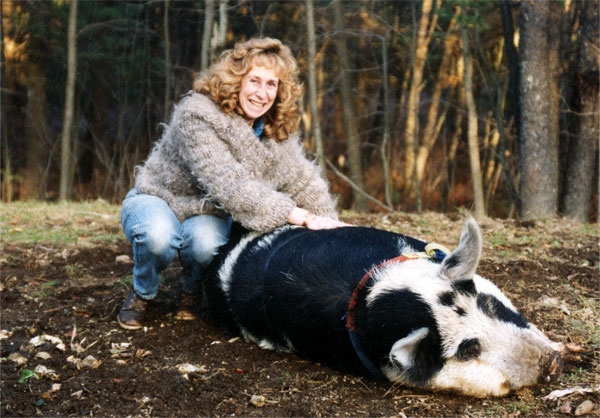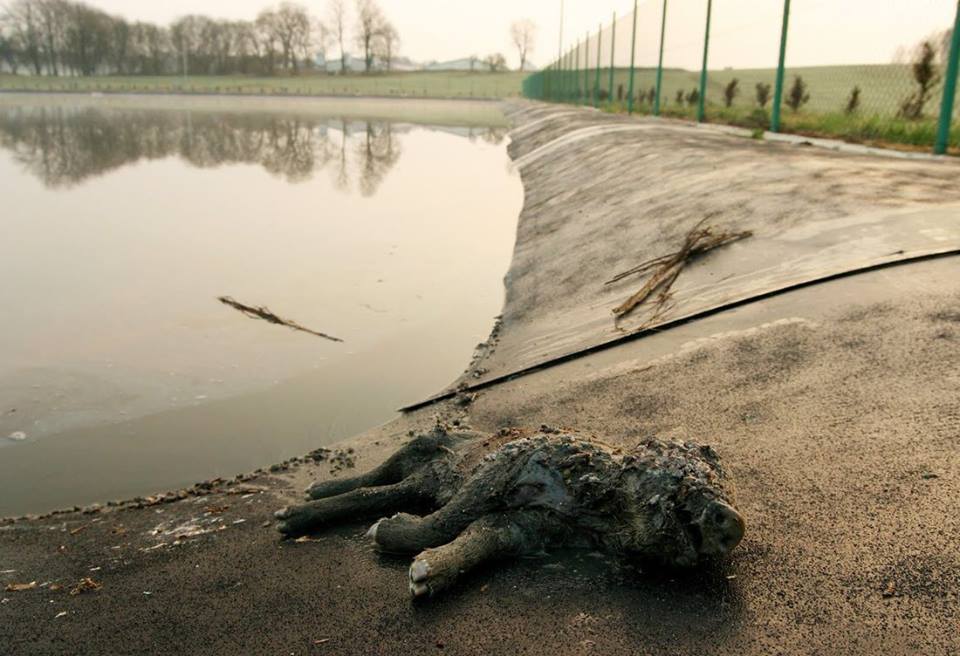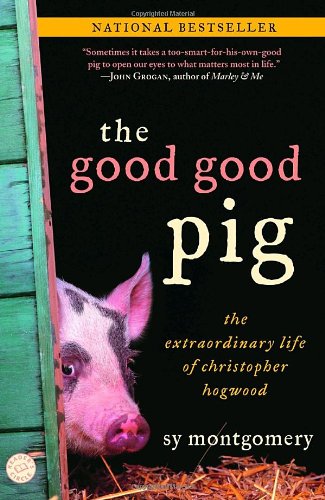
I’m dedicated to animal welfare. It’s something that I’ve done for most of my life.
Later this month, Singapore’s Animal Concerns Research and Education Society will be holding its Flag Day and Carnival at the Youth Park on July 27. Like the organisation, like-minded folk such as myself will be advocating cruelty-free choices in life, and to raise awareness of unethical factory farming methods that affect not just our environment but also our health.
The joy of sharing and educating is as profound as the joy of sharing a good read, so a 2007 book that’s worth revisiting in an age of greater awareness is a story of a pig. A pig who “outlived everyone in his class by thirteen and a half years”. His is a story of survival, and not just his own, but of all those who had the privilege of knowing him.
His name was Christopher Hogwood.
A good piece of writing is hard to come by – what with all the content online and offline masquerading as worthwhile reading material. That said, a good book is probably harder to come by.
The Good Good Pig: The Extraordinary Life of Christopher Hogwood by Sy Montgomery is a good book. It doesn’t pretend to be a literary masterpiece, nor does it purport to shove ideologies down readers’ throats. It is respectful of its readers’ sensibilities and quietly urges them to think more deeply.
All through the simple telling of the story of an amazing pig.
For those who are already convinced of the cruelty of factory farms and for people who humbly acknowledge their place on Earth, The Good Good Pig validates the decision to adopt a life of peaceful co-existence with all sentient beings.
More remarkably, The Good Good Pig could potentially move the cynic to deeper reflection and thought.
Three things about the book stand out: a thought on ecological balance, the dynamics of an evolved human-animal relationship and spirituality.
“Christopher Hogwood came home on my lap in a shoebox. He was a creature who would prove in many ways to be more human than I am.” An excerpt from The Good Good Pig
Sy Montgomery is a naturalist, author, documentary scriptwriter and radio commentator. Her other books include Journey of the Pink Dolphins, Spell of the Tiger and Search for the Golden Moon Bear. She spent a considerable amount of time in The Sundarbans in Bangladesh researching the man-tiger relationship.
On ecological balance, she writes: “The stories reflect a sophisticated understanding of ecology. The tiger protects the forest: fear of the tiger keeps woodsmen from cutting down all the mangroves. The mangroves protect the coastline: their limbs and leaves soften the winds of cyclones. Their roots form nurseries for fish, which feed the people. The people understand that without the tiger, Sundarbans could not stay whole.”

On human-animal relationships, which is the point of the book, her perspective on the predator (and pest) issue is particularly insightful.
“Human relationships with predators have always been thorny. Predators are the first creatures our kind purposely eradicates. Too often, people feel humans are and should be in control; we are enraged to discover this is not true. And when other creatures share our appetites and kill our livestock (often animals we were raising to kill, ourselves), we call them vandals and murderers.”
Many things about The Good Good Pig would resonate with readers who have pets they pamper; especially how the author refers to her animals. To me, too, my cat is “someone”, “who”, “he”.
Perhaps this gives some insight to her spirituality. Not quite the same thing as religiousness, mind you. Sy is a Christian woman, but not all Christians feel the same way about animals. Or about God.
“Watching a pig eat is the ultimate vicarious thrill,” she writes.
“Seldom can you take such pleasure in another’s joy. Here is someone following his bliss… Grunting, slurping, and snorting with delight, Christopher ate with the enthusiasm of a gourmand and the natural grace of an athlete…
“We humans aren’t allowed to enjoy food this much. To do so is labelled the sin of gluttony, and its consequences, if we are to believe the magazines, is clogged arteries, shapeless couture and guilt. For many of us, food is the enemy. But while Christopher was eating, it seemed he was communing with his Higher Power. It was a beautiful thing to see.”
Similar to Sister Francoise Bosteels and her dolls, The Good Good Pig speaks a quiet activism. One of love. The book was borrowed from the National Library.
This is an edited version of a book review that originally appeared in The Creative Voice.



